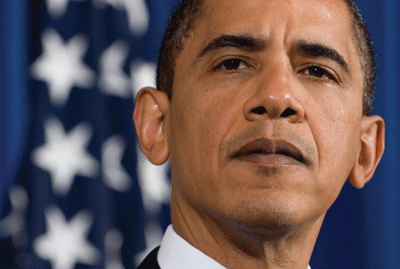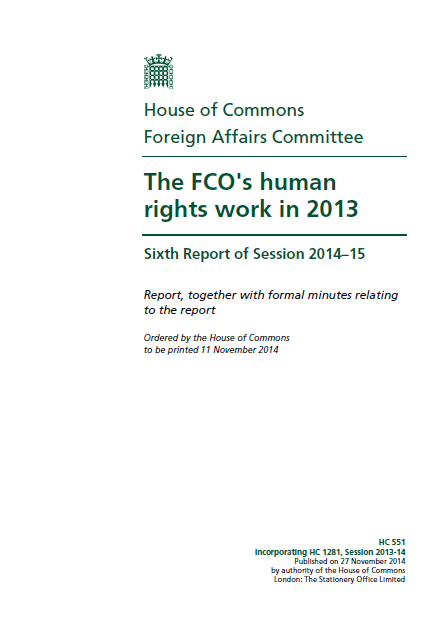Posts Tagged ‘Muslims’ (100 found)
Statement from First European Rohingya Conference
Europe based Rohingyas held a very first conference in Esbjerg, Denmark from 27th to 28th December 2014. All Rohingya organizations in Europe joined to work collectively for the suffering of Rohingyas in Arakan State and to raise stronger voice against quasi-civilian Burmese government […]
• • •Myanmar’s Proposed Race and Religion Laws are Discriminatory and should be Scrapped
BANGKOK — Southeast Asian lawmakers today called on Myanmar to scrap a package of discriminatory laws to be submitted for review by the parliament, saying they violate international human rights laws and threaten to destabilize the county in its transition to democracy. […]
• • •The FCO’s Human Rights Work 2013
In this report, we examine the 2013 Foreign and Commonwealth Office (FCO) Report on Human Rights and Democracy (2013 Report), and highlight some areas of particular concern. Promoting human rights should be a foreign policy priority, but for this to be meaningful, we believe that the Department would benefit from the establishment of clearly defined objectives and benchmarks to measure the outcomes of all of its human rights policies, and further prominence being given to these in the Report.
Countries of concern
The FCO designated 28 countries of concern in its 2013 report, where it judged the gravity of the human rights abuses to be so severe that a particular focus should be applied. We have concentrated our attention on three of these countries: Sri Lanka, Burma, and Israel and the Occupied Palestinian Territories. Favourable trade concessions to the EU market should be removed from Sri Lanka if the Government of Sri Lanka continues to deny the OHCHR investigation team access into the country. The Government should advocate re-imposition of sanctions by the EU if there is no improvement in the human rights situation in Burma. The human rights of Israeli, Palestinian and Bedouin citizens living in Israel and the Occupied Palestinian Territories continue to be of serious concern to the UK. […]
• • •Rohingya Organisations Condemn the ‘Cowardly’ Murder of 23 Young Cadets Members of the Kachin Independence Army and Call for Inter-Ethnic Solidarity
We endorse the United Nationalities Federal Council’s condemnation of Burma’s military and its ruling party in the un-provoked and ‘cowardly’ murder of young Kachin officer cadets by the Burma Tatmadaw Light Infantry Battalion 389, based at Khaya Bum in Kachin State, by the intentional firing of 105 mm artilleries at the military academy of the Kachin Independence Army (KIA) situated at Woi Chyai Bum on November 19, 2014 at 12:36 PM […]
• • •BROUK Welcomes US Senate Resolution on Rohingya
Burmese Rohingya Organisation UK today welcomed the introduction of a Resolution in the US Senate condemning all forms of persecution and discrimination against the Muslim Rohingya ethnic group from Burma. BROUK would like to express many thanks to US Senator Menedez and Senator Mark Kirk for introducing this resolution. […]
• • •International Community Silent on New Rohingya Crackdown
International Community Silent on New Rohingya Crackdown Burmese Rohingya Organisation UK today called on the international community to end its silence over a new wave of repression against the Rohingya which began in September. […]
• • •Are You Listening, President Obama?
 US President Barack Obama’s made his much-anticipated second trip to Burma last week during the 25th ASEAN Summit, amid growing awareness that the reforms which he so eagerly celebrated during his 2012 trip are quickly unravelling – or being exposed for the stage-managed charade that they are.
US President Barack Obama’s made his much-anticipated second trip to Burma last week during the 25th ASEAN Summit, amid growing awareness that the reforms which he so eagerly celebrated during his 2012 trip are quickly unravelling – or being exposed for the stage-managed charade that they are.
In 2012, it was all too easy to trust the reform process. National elections had been scheduled for 2015, Daw Aung San Suu Kyi had been freed from house arrest and elected to Parliament, political prisoners had been released, a nationwide ceasefire process was underway with the majority of armed ethnic groups, and restrictions on media and civil society had been drastically loosened. And so the US and the international community embraced the reforms.
Yet, last month, in her recent address to the UN General Assembly, Special Rapporteur on the situation of human rights in Burma Yanghee Lee warned of the risks of backtracking. Then, earlier this month, Daw Aung San Suu Kyi labelled the process as “stalled” and remarked that “there have been times when the [US] government has seemed over-optimistic about the reform process.”
Furthermore, there has been a flurry of recent calls from civil society across Burma, directly raising their various concerns about the reform process with President Obama. The Karen Human Rights Group wrote an open letter drawing President Obama’s attention to human rights violations resulting from the ongoing government military presence throughout south-eastern Burma; […]
• • •Myanmar: A Tipping Point for Rohingya Rights?
 Two years after a wave of violence hit the region, Myanmar’s Rakhine State has become a segregated zone. Two million ethnic Rakhine live apart from 1.2 million stateless Rohingya, who are trapped inside displacement camps or barred from leaving their villages. Ending this segregation and protecting the rights of the Rohingya are necessary components of Myanmar’s move toward democracy. However, the Rakhine leadership has rejected – both politically and with force – any reintegration of the two communities, and it is seeking to exclude the Rohingya from any role in the state’s development, distribution of resources, and political representation. […]
Two years after a wave of violence hit the region, Myanmar’s Rakhine State has become a segregated zone. Two million ethnic Rakhine live apart from 1.2 million stateless Rohingya, who are trapped inside displacement camps or barred from leaving their villages. Ending this segregation and protecting the rights of the Rohingya are necessary components of Myanmar’s move toward democracy. However, the Rakhine leadership has rejected – both politically and with force – any reintegration of the two communities, and it is seeking to exclude the Rohingya from any role in the state’s development, distribution of resources, and political representation. […]
Launch of International Panel of Parliamentarians for Freedom of Religion or Belief
OSLO — APHR members joined together with fellow parliamentarians from across the world in Oslo this weekend to launch the International Panel of Parliamentarians for Freedom of Religion or Belief, tasked with working towards eradicating belief-based persecution across the globe. […]
• • •Ethnic Cleansing of the Rohingya: Obama’s Duty is ASEAN’s Shame
KUALA LUMPUR — With Barack Obama gracing the halls of Naypyidaw this week, the world has quite rightly been calling loudly for the President of the United States of America to raise concerns regarding the backslide in human rights and democracy in Myanmar, not least of which being the institutionalized persecution and ethnic cleansing of the country’s Rohingya minority. […]
• • •









 All posts
All posts